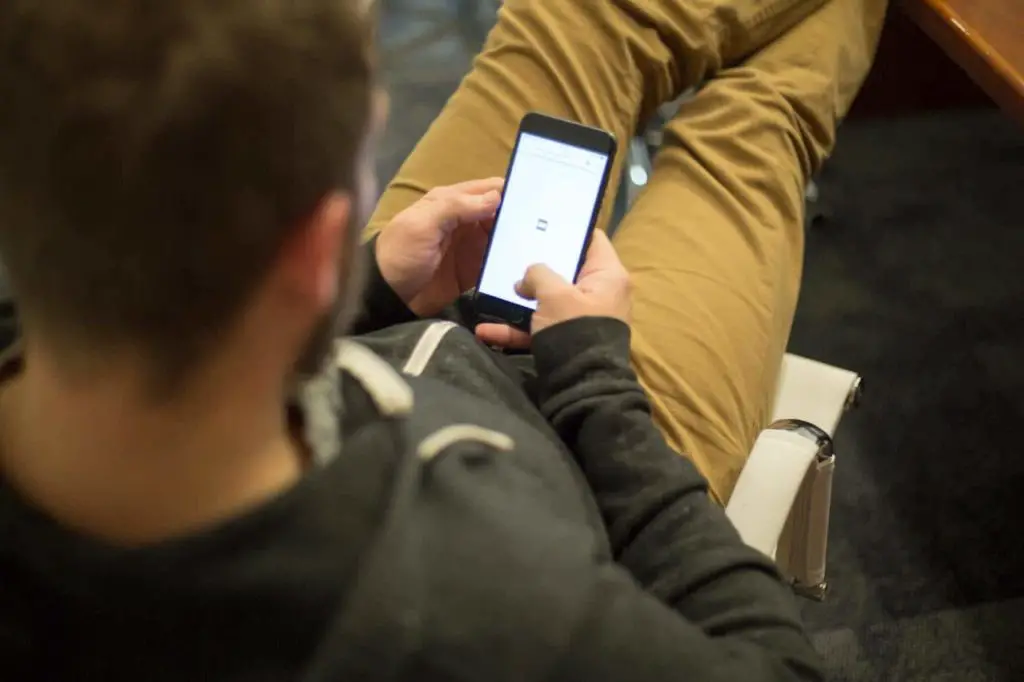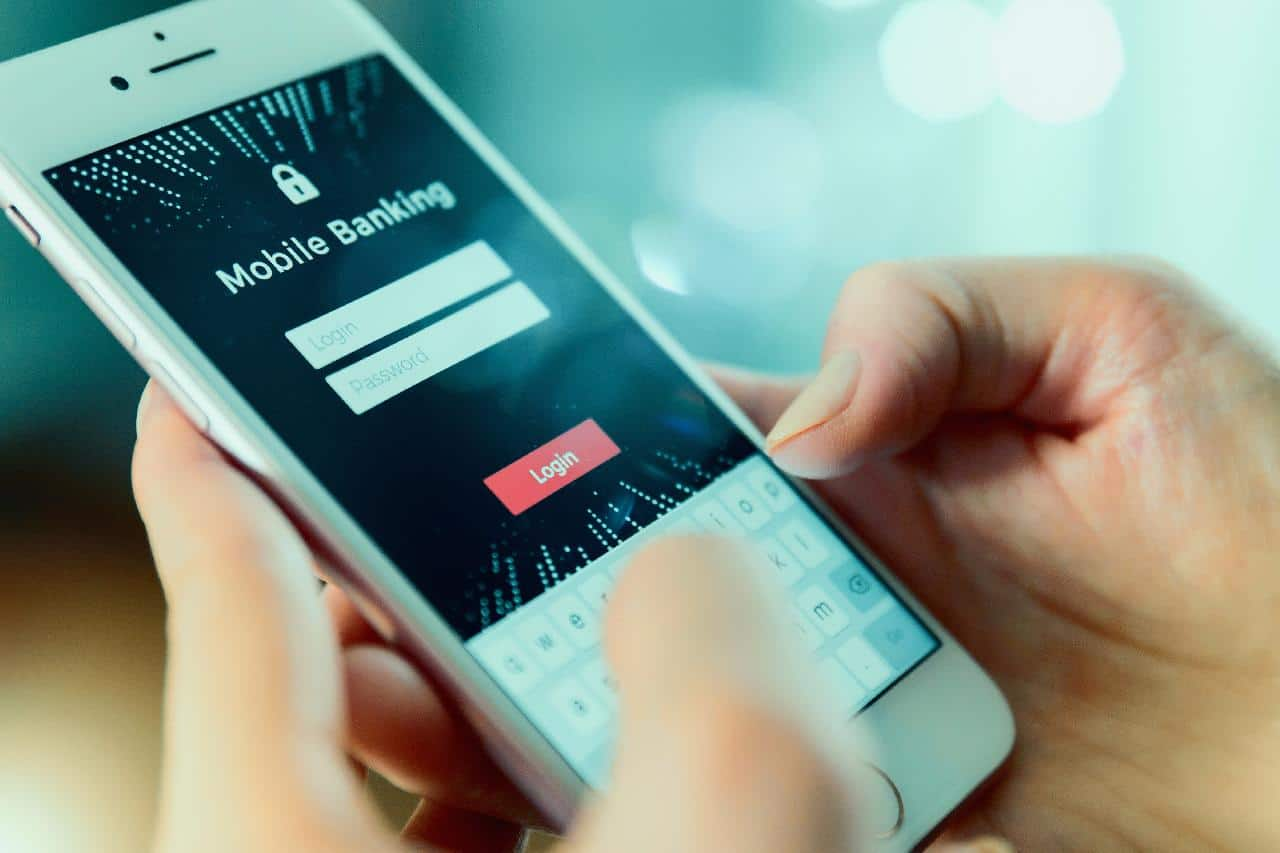With the advancement of financial technology, conventional banks started to investigate the possibility of providing online services. Although online banking is unquestionably convenient, it also has many additional benefits and drawbacks. There are a lot of advantages and disadvantages of online banking to note. Is online banking right for you, or should you limit your online banking activities?
The advantages and disadvantages of online banking for customers differ by bank. The primary benefit is 24-hour access to your bank account and financial services. However, there are some security concerns with online banking, including the possibility of your account getting hacked.
Advantages of Online Banking

The following are the most notable advantages of online banking for customers:
- 24-Hour Service
- Speed and efficiency
- Online bill pay
These and other advantages will be discussed further in the following sections.
You Have Access To Your Account Around The Clock
Unlike a bank branch, online banking allows you to access your account whenever you want, even at 2 AM, saving you time. However, several exceptions, such as scheduled maintenance on your bank’s website and unanticipated power outages. Some banks have complimentary unlimited access to a live customer service representative through their smartphone app.
Online Banking Allows Transfering Money Between Accounts From Home
Transferring funds between accounts is a simple process when done online. It’s far more convenient than visiting a bank in person or calling an automated phone service, which usually requires providing details when prompted.
- If you’re exchanging funds between various types of accounts at the same bank, the transaction should be completed on the same day. In contrast, transferring funds to a different bank can take up to three days.
Online banking transcends regional borders, as a consumer can make payments from anywhere in the world to anybody, at any period or in any location.
You Can Perform Transactions on Your Phone With a Mobile App
Most financial institutions offer a mobile app that enables you to access online banking quickly from your phone and view and manage your account history and transactions from any mobile device, including a tablet. You’ll want to verify that you’re connecting to a secure network when using your banking app to prevent getting confidential information stolen.
Online Banking Allows You To Deposit Checks Online
Banking apps usually allow you to deposit checks by uploading photos of the front and endorsed back of the check. In certain instances, the bank may instruct you to have written authorization on the check approving it for use in online banking. You can also access this service and more through your web browser, but this is a less likely scenario.
You Can Pay Bills Online
Another great advantage is you can pay your bills online via your bank’s website.
Most banks have a segment for creating payees. You’ll need to enter the details only once, and then you can select that payee whenever you want to make a payment to that company. Additionally, you can create a recurring monthly automatic payment in the same sum, which is perfect for an expense that does not fluctuate month to month, such as a car payment.
You may also allow a payee to debit your account automatically for the amount you owe. You will need to provide the account number to the payee from which the funds are to be debited and the routing number for your bank. Make sure to know the direct deposit times for your bank.
Monitoring Fraud Is Easier Online
Online banking offers continuous access to your transactions, allowing you to check for fraud. If you detect fraud immediately or soon after it occurs, you can put an end to it before it causes further harm. The sooner you report theft, the sooner the bank will reimburse you.
You should check your financial account records monthly to ensure that you and not a scammer performed all transactions. If you don’t disclose the transaction within 60 days, you will almost certainly not get reimbursement for the fraudulent purchases.
Banks Have Notaries
Most banks have notaries which you can use to sign your documents securely. Additionally, most banks offer this service for free to current account holders.

You will need a debit card with the bank to withdraw cash from an ATM machine or purchase goods and services online.
No Need for Checks
With online banking, there is no need for checks or to have a checking account. You don’t have to worry about how to void a check since most of the transactions are EFT transfers.
Additionally, you’ll have to get rid of your old checks. There are many options what to do with old checkbooks if you need options.
Can Get a Bank Account Even If You Have Bad History
If your banking history is not the best you may think you can’t qualify for a new account at a bank. That’s not the case. There are plenty of banks that don’t use Chexsystems to check your banking history, meaning you can still have access to online banking even if you don’t have the best history when it comes to personal banking.
Online Banking Is Safe From Interruption
Suppose there is ever an interruption in service for any reason, whether caused by human error or natural disaster. In that case, your account information will be available on the backup server so that no transactions are missed. If all customers have access to their accounts through internet banking, they won’t worry about missing payments during a crisis. Banks Keep Your Personal Information Private
Even though most banks require some form of personal identification before granting access to certain portions of their website, once this has been provided, you can feel confident in the knowledge that your personal information is safe and secure.
You Can Sync Budgeting Apps to Your Online Account
You can link numerous budgeting applications to your online banking account, making it far easier to stick to a budget. Several applications are suitable for this purpose, including the following:
If you budget by paycheck or have shared bank accounts with a partner, you will want to search for an app that allows you to sync your information quickly. The below are budgeting applications tailored to couples or households:
Service Fees May Be Lower
Service fees might be lower depending on whether you bank with a traditional bank or an online banking program. Since online banks are not subject to certain operating costs, they can transfer those savings to customers, which usually translates into lower rates for banking online compared to conventional banking practices.
Numerous online banks offer a no-fee online checking account, as well as other no-fee bank accounts.
Online banks are especially advantageous for individuals with poor credit scores. You will be able to open a bank account electronically without submitting a credit check, although there will be recurring fees.
Banking Online Can Result in Increased Interest Rates
Along with low fees, online banks also deliver the highest interest rates.
If you’re looking for a high yield checking account or a deposit account with better interest, online banking is ideal for you. Although markets change, you’ll typically find that online banks offer a higher rate of return than conventional banks.
This advantage does not extend if you use a physical bank. Still, many traditional financial services reward customers for using online banking, which results in more revenue for you.
It’s a More Environmentally-Friendly Way To Bank
Online banking eliminates unnecessary paperwork. You and the bank use far less paper because there is a decreased need for written authorization or form filling.
Moreover, if you own an enterprise, transitioning to online banking enables you to go paperless while maintaining access to corporate bank transactions, electronic records, and other files.
You Can Use Electronic Payments
You can also use all electronic forms of payment for bills with online banking. One option includes using an eCheck as a payment option. You can learn what is an eCheck and how does it work plus FAQs.
Disadvantages of Online Banking
Despite its many benefits, online banking does have some pitfalls.

Here are a few disadvantages of online banking for customers:
- Technology issues
- Security concerns
- Deposits are inconvenient
- Complex transfers are challenging
These and other disadvantages of online banking are described in detail below.
Technology or Internet Disruptions
Online banking depends on a reliable internet connection. If your Internet is interrupted by a power outage or network problems at your bank, your ability to access your account would be disrupted.
Banking online depends on nothing going wrong, but when it does, it can cause problems, such as being in the middle of completing an important transaction. For example, you may need to enter your account immediately to prove theft or other purposes, but it will be impossible before Internet access is restored. Similarly, planned site maintenance also ensures you can’t manage your accounts and will have to consider other options.
Limited Banking Services
Although online banking offers various services, some banks require account holders to visit their branch and sign papers. Transactions that may need written authorization include loan and credit applications, major cash withdrawals, and large deposits. However, as online banking technology advances, you will soon be able to sign in to these electronically. Several banks are starting to head in this direction.
Deposits are another function that banks cannot offer to online account holders, except through checks or wire transfers. Typically, you would deposit funds into a savings or checking account at your branch in person.
You Still Must Withdraw Money From the ATM
One downside of online banking relates to withdrawing funds. Although most companies accept debit and credit cards, customers want to keep cash on them as well. As a result, you cannot withdraw money over the Internet and must visit your bank’s physical address.
Alternatively, you can withdraw money at an ATM that’s not affiliated with your bank but must pay hefty service fees. This process gets even more difficult if you belong to an online-only bank, where you may be required to withdraw cash using the mail since many of them do not have ATMs.
There Is No Personal Relationship Between You and Your Bank
A partnership with your bank on a personal level can be beneficial compared to online banking. Since online systems are automated, you cannot seek personalized guidance on managing your account. Having a relationship helps with the following instances:
- Getting a loan
- Obtaining a new line of credit
- Requesting a fee waiver
- Modifying existing banking arrangements
A perfect partnership between you and your bank would consist of online banking with regular in-person transactions to form a personal relationship with your lender.
Security Concerns and Hackers
Most banks use tokenized security to protect your account, but if someone has physical access to the token or knows your login information, they can still do damage.
With online banking’s expanded use, it has become an increasingly attractive option for hackers. Notorious cyber attacks in recent years include the following:
- On July 25, 2020, attackers released confidential information on 7.5 million users of the ‘Dave’ banking application.
- In May 2019, a Colorado bank experienced an external security issue resulting in the termination and redistribution of customers’ debit cards.
- On July 29, 2019, Capital One revealed that it had experienced a cyber attack affecting the credit card applications of about 100 million people.
The past of online banking can seem daunting, but there are things you can do to keep your account safe from hackers and threats.
Lost Bank Account Access
If you lose your phone or laptop containing all of your banking data on the device, you will lose all access to any of those crucial accounts remotely. This could cause significant problems with payments and transfers and other features like bill pay services that require an Internet connection 24 hours a day.
Availability Of Funds
You may be able to transfer funds between accounts online. Still, it could take up to five days before those funds become available in your account at their new destination, which is much slower than if you were using instant transfers or instant online check cashing which can happen almost instantly.
Access Might Be Limited if Rural
Additional disadvantages of online baking not mentioned above would include the potential of not accessing your account when you are away from home or a Wi-Fi connection and having fewer options for products with lower APRs.
Limited Banking Staff on Weekends
Additional disadvantages of online baking not mentioned above include the lack of availability on weekends and holidays, which requires someone else’s phone number who can authorize large transactions.
If you need papers signed, such as mentioned above, you might not be able to do so online.
Lack of Personal Service
The lack of personal service can be a disadvantage for some people who need to talk with someone face-to-face and might not prefer the limited options available in this form of banking. There is also no interaction, which means your safety could be compromised if you have questions or concerns about potential fraud. You would not be able to cash third party checks as well.
For those reasons, it would be best to use caution when using this type of banking method, especially if you are already uncomfortable with technology in general.
Inconvenience When Switching Accounts
If you switch online banks, there will be an inconvenience in transferring your account information and settings to the new bank. There are differences between checking vs. savings accounts. Chances are, you might need to talk to someone about this process. Then you will have to spend time updating your information and settings. You’ll also need starter checks for the new account. This is harder to do with an online bank.
Fees Associated With Online Transactions
Some online banks charge fees for certain services, which is also a disadvantage. Sometimes physical banks will waive fees if you are in person. With an online bank, you don’t have that option.
It’s Harder For People With Disabilities To Use Online Banking Services
Some people who have disabilities have difficulty with using online banking services such as a mouse and keyboard. As a result, they can be essentially locked out from account management.
The lack of physical branches may also make it difficult for people with disabilities to obtain information about their accounts.
Older Generations Struggle With Banking Online
Generations that are not tech-savvy or who are not web-literate have a difficult time adapting to banking online. They struggle with things like managing their accounts, reading bank statements online, and paying bills.
How To Protect Your Online Bank Account From Hackers
To protect your identity, all data exchanged between you and your bank is encrypted. Firewalls are used to separate protected internal networks from untrusted external networks. However, online protection is also contingent on your behavior.

Consider the following online banking protection advice to safeguard your finances and identity.
Select Strong Passwords
Several of the most frequent errors made with online banking passwords include the following:
- Picking well-known terms
- Choosing simple phrases
- Not regularly changing passwords
- Using primary numerical sequences like ‘1111’ or ‘1234’
- Having multiple accounts with the same password
- Using personally identifiable details, such as your name or birth date
While these measures can make it easier to remember passwords, they also make it easier for attackers to guess your password and access your online banking records. Below are some tips for making more secure passwords for online banking:
- Use 16 characters or more
- Utilize a combination of uppercase and lower characters
- Use numeric and special characters
- Avoid using well-known sequences like ‘5678’
- Avoid including personal information
- Keep your online banking credentials up to date
- Do not store your login credentials in your online banking or mobile banking application
Changing passwords every three to six months will also help reduce the likelihood of a hacker decoding them. Additionally, try storing and protecting the passwords with a password manager, which will make it easy to use longer, more complex passwords.
Allow Two-Factor Authentication
Multi-factor authentication enables you to secure your online account by adding layers of security verification. You must first enter your username and password, then pass a second security check.
For instance, you might be required to enter a unique code or confirm your account with an automatic phone call. Typically, you will need access to your smartphone or email address to complete the process, making it more difficult for a hacker or identity thief to access your account.
Contact your bank to determine if multi-factor authentication is available because every bank does not offer this feature yet.
Avoid Using Public Wi-Fi
Although public Wi-Fi is convenient for staying connected throughout the day, you cannot rely on it to be safe. According to Norton, some of the more serious security threats associated with public Wi-Fi are the following:
- Malicious hotspots
- Spyware and malware
- Man-in-the-middle attacks
- Unencrypted data transfers over public networks
The most effective way to safeguard your online banking credentials by using public Wi-Fi is to avoid it entirely. However, if you use the Internet to access online banking when in a general location, you can take steps to ensure your security.
You might try disabling public file access and using secured websites, as well as establishing a virtual private network. VPNs build a secure network that is accessible only to you. There are multiple VPN providers, including:
Subscribe to Banking Alerts
Banking alarms and updates are some of the most convenient ways to keep track of your banking security. Based on how your bank operates, you can receive messages by email or text. You may want to set up the following types of alerts:
- Alerts for failed logins
- Notifications on newly generated credit and debit transactions
- Notifications of password changes
- Alerts for outgoing wire transfers
- ATM withdrawal alarm
- Large purchases notification, which you would determine what is an extravagant purchase.
Notifications are beneficial if someone hacks your account and makes a fraudulent purchase. You can immediately contact your bank if you believe your online banking credentials have been breached to stop any further fraudulent activity.
Keep an Eye Out for Phishing Scams
Phishing scams are among the most often used techniques to obtain personal and financial details, usually involving duping you into disclosing your security details.
Phishing scams take on a variety of types, but they are frequently email scams. For instance, users can receive an email purporting to be from their bank asking them to update their records. Then, the email redirects users to a dummy domain where hackers have full access to their information. Alternatively, monitoring malware is sent to your device, allowing identity thieves to record your keystrokes.
In any case, you’ve unknowingly divulged your login credentials. Because of these scams, it’s necessary to scrutinize all emails requesting financial or personal information critically.
If you receive an email from your bank requesting information, contact your nearest branch or customer support to ensure the request is valid before providing any information. Likewise, if you get a phone call from your bank requesting your banking records, hang up immediately.
Since the future of money is electronic, you should always be on guard for phishing scams.
Select Financial Apps with Caution
When it comes to encryption, not all financial apps are created equal. These apps may ask for your online banking login credentials to pull data and build your financial profile, which could jeopardize your data if those secondary apps are not stable.
Check the ratings and reviews of financial applications before installing them from the app store, and research the software creator’s security policy to verify whether the developer has a history of data breaches.
Online Banking Final Thoughts
There are a lot of advantages and disadvantages of online banking. Although online banking allows you more control over your financial life, there are security risks with everything else online. This should not prevent you from ever using online banking, but you must exercise caution in your approach.
Taking a constructive approach to cyber risk management will further improve the likelihood of having a positive online banking experience. Take time to think on the advantages and disadvantages of online banking to see if it is right for you.



